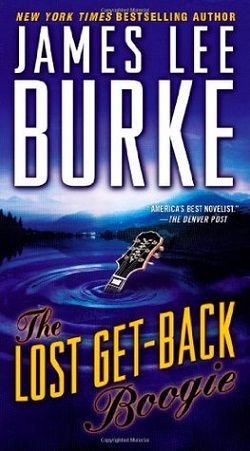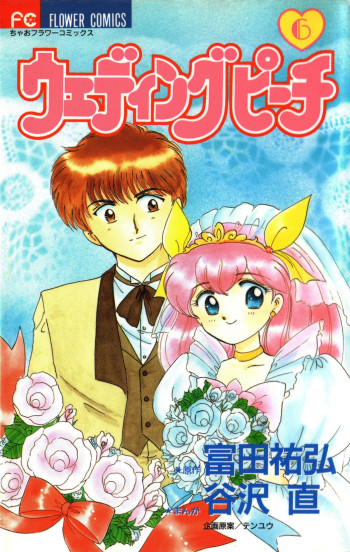Summary

The Lost Get-Back Boogie
by James Lee Burke
Iry Paret's done his time -- two years for manslaughter in Louisiana's Angola State Penitentiary. Now the war vet and blues singer is headed to Montana, where he hopes to live clean working on a ranch owned by the father of his prison pal, Buddy Riordan. In prison, Iry tinkered with a song -- "The Lost Get-Back Boogie" -- that never came out quite right. Now, the Riordan family's problems hand him a new kind of trouble, with some tragic consequences. And Iry must get the tune right at last, or pay a fateful price.
.
Read
The Lost Get-Back Boogie on http://kissnovel.net
Martial Peak Reviews
James Lee Burke's The Lost Get-Back Boogie is a hauntingly beautiful exploration of redemption, the weight of the past, and the power of music. Set against the backdrop of the rugged Montana landscape, the novel follows Iry Paret, a war veteran and blues singer who has just been released from Louisiana's notorious Angola State Penitentiary after serving two years for manslaughter. Burke's lyrical prose and deep character insights create a rich tapestry that invites readers to reflect on the complexities of human nature and the struggles of finding one's place in the world.
At the heart of the narrative is Iry Paret, a character who embodies the scars of his past. His journey to Montana is not just a physical relocation but a quest for personal redemption. Burke masterfully delves into Iry's psyche, revealing the internal battles he faces as he attempts to reconcile his violent past with his desire for a peaceful future. The author paints Iry as a deeply flawed yet relatable character, whose love for music serves as both a refuge and a reminder of his failures. The titular song, “The Lost Get-Back Boogie,” symbolizes Iry’s struggle to reclaim his life and identity, making it a poignant motif throughout the story.
Burke's portrayal of the Riordan family adds another layer of complexity to the narrative. As Iry becomes entangled in their lives, the reader is introduced to a cast of characters who are equally troubled and multifaceted. Each member of the Riordan family grapples with their own demons, and their interactions with Iry highlight themes of loyalty, betrayal, and the consequences of choices made in desperation. The familial bonds are tested, and the tragic consequences of their struggles serve as a stark reminder of how interconnected lives can be, especially when burdened by secrets and regrets.
One of the most striking aspects of The Lost Get-Back Boogie is Burke's ability to evoke a strong sense of place. The Montana landscape is not merely a backdrop; it is a character in its own right, shaping the lives of those who inhabit it. Burke's vivid descriptions of the natural world serve to enhance the emotional weight of the story, creating a stark contrast between the beauty of the landscape and the turmoil within the characters. This duality reflects the broader theme of the novel: the coexistence of hope and despair, beauty and brutality.
The theme of music as a form of expression and healing is woven throughout the narrative. For Iry, music is both a sanctuary and a battleground. His struggle to perfect “The Lost Get-Back Boogie” mirrors his quest for redemption. Burke captures the essence of blues music, illustrating how it serves as a voice for the voiceless and a means of processing pain. The act of creating music becomes a metaphor for Iry's journey toward self-acceptance and forgiveness, making the reader acutely aware of the transformative power of art.
Burke's writing style is rich and evocative, filled with poetic imagery and profound insights. His ability to convey complex emotions through simple yet powerful language is one of the hallmarks of his work. The dialogue is authentic and often laced with a sense of melancholy, reflecting the characters' struggles and aspirations. Burke's knack for creating memorable, nuanced characters ensures that readers become emotionally invested in their journeys, making the stakes feel incredibly high.
In comparison to other works by Burke, such as his Dave Robicheaux series, The Lost Get-Back Boogie shares similar themes of crime, redemption, and the impact of the past on the present. However, this novel stands out due to its focus on the healing power of music and the exploration of familial relationships. While Robicheaux often grapples with the darkness of human nature within the context of law enforcement, Iry's story is more introspective, emphasizing personal growth and the quest for meaning in a chaotic world.
The novel's pacing is deliberate, allowing readers to fully immerse themselves in Iry's emotional landscape. Burke takes his time to develop the characters and their relationships, creating a sense of realism that resonates deeply. This slow burn may not appeal to all readers, particularly those seeking a fast-paced thriller, but for those willing to invest in the characters' journeys, the payoff is profound.
Ultimately, The Lost Get-Back Boogie is a testament to Burke's skill as a storyteller. It is a novel that challenges readers to confront their own pasts and consider the ways in which they seek redemption. The interplay between music, memory, and identity creates a rich narrative that lingers long after the last page is turned. Burke's exploration of the human condition, coupled with his evocative prose, makes this book a compelling read for anyone interested in the complexities of life, love, and the pursuit of forgiveness.
In conclusion, James Lee Burke's The Lost Get-Back Boogie is a masterful work that combines lyrical storytelling with deep emotional resonance. It is a poignant exploration of the human experience, reminding us that while the past may shape us, it does not have to define us. For readers seeking a reflective and immersive literary experience, this novel is a must-read.







![Baby Prisoner of the Winter Castle [Official]](/upload/pic/manga/baby-prisoner-of-the-winter-castle--official-.jpg)
















Reviews 0
Post a Reviews: